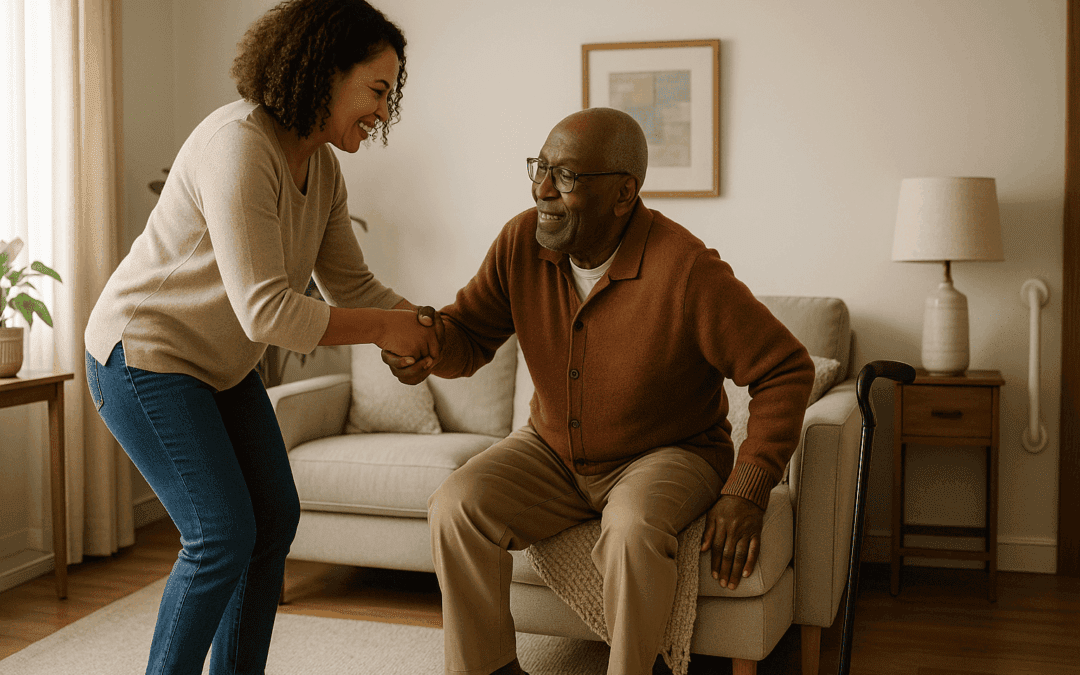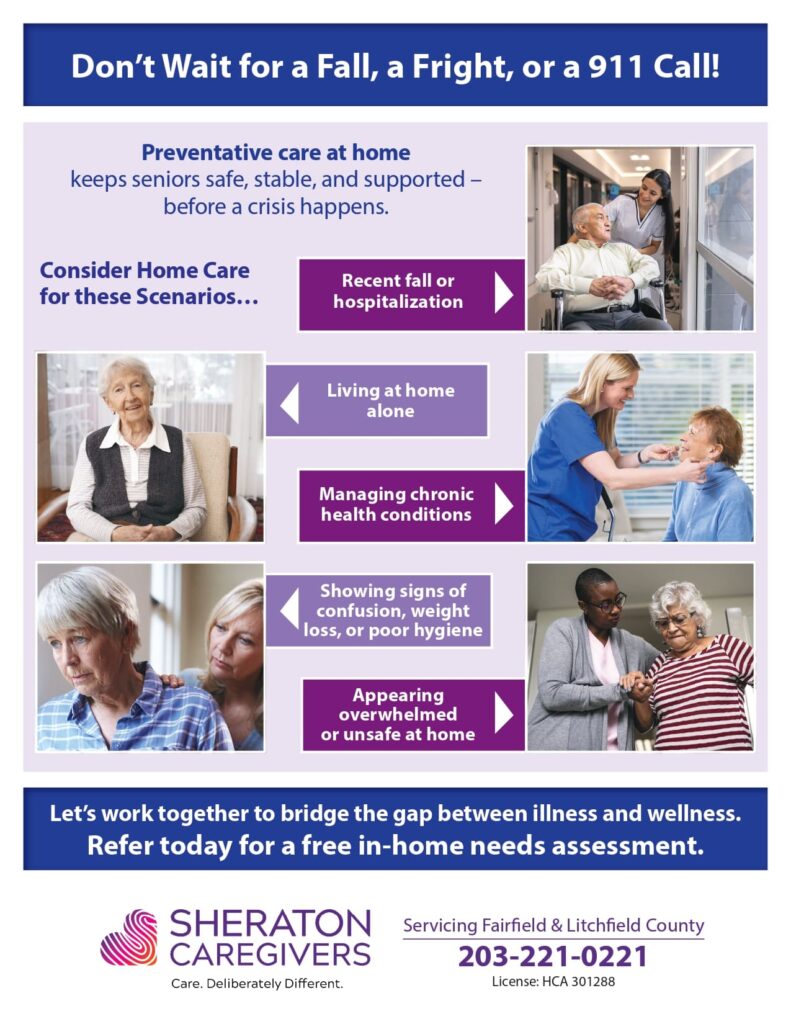TLDR
Assisting seniors at home means providing personal care, medical support, household help, companionship, and tech-based safety—all delivered where the person is most comfortable. Home care preserves independence, emotional well-being, and personalized routines, but families should watch for caregiver burnout, home-safety gaps, rising costs, and limits of what can safely be managed at home.
Quick fixes: make simple home modifications (grab bars, better lighting), use safety/medication tech, share caregiving duties or hire trained professionals, and plan financially (look into home-health benefits). For extra support, tap caregiver resources and vetted home-care providers.
Helping Loved Ones at Home
When someone we care about starts getting older, it’s normal to wonder how we can keep them safe, comfortable, and happy. For many families, the answer is assisting seniors at home – finding ways to provide support right where they feel most comfortable.
In this blog, we’ll talk about what home care really looks like, the benefits and challenges, and some practical ideas to make the experience meaningful and manageable. Think of this as a friendly conversation about helping loved ones live their best life at home.
What Do We Mean by Assisting Seniors at Home?
At its core, assisting seniors at home is about providing care, support, and services in the place someone calls home, instead of moving them into a facility. Merriam-Webster defines home care as “care provided by trained workers to patients in their home for problems with daily activities,” but in real life, it’s about helping loved ones live safely, comfortably, and independently.
Most adults prefer to stay in their own homes as they age. According to AARP, nearly 77% of adults over 50 hope to age in place. That means families and caregivers are finding ways to make homes safer, more accessible, and supportive. Staying at home keeps routines familiar and also helps reduce loneliness, and maintain a sense of independence.
Take Marie, for example. She’s a retired teacher living alone who has some mobility challenges. Her family worried about her safety, but with a little in-home support – like medication reminders, mobility aids, and companionship visits – Marie can continue living in the home she loves, surrounded by memories and comfort.
How You Can Help Seniors Every Day
There are a few main ways support can show up at home.
- Personal Care is hands-on help with daily routines, such as bathing, dressing, and grooming.
- Medical Support comes from licensed professionals who handle things like skilled nursing, physical therapy, or medication management.
- Household Help includes chores, cooking, shopping, and laundry, making day-to-day life easier for seniors.
- Companionship focuses on social interaction and emotional support, which can help reduce feelings of loneliness or depression.
- Technology-Based Support uses devices and apps, like fall detection systems, medication reminders, and telehealth check-ins, to keep seniors safe and connected.
Why Staying at Home Makes a Difference
There are plenty of reasons families choose home care, and they go beyond basic tasks.
- Being at home helps seniors stay independent. Familiar surroundings give confidence and a sense of control.
- It supports emotional well-being. Staying in their own community keeps seniors connected to people and places they know, which can boost mental health.
- Custom care is an advantage. Families can tailor support to meet specific needs, rather than relying on one-size-fits-all solutions at a facility.
- Home care keeps families closely involved. Loved ones can take part in daily life and care decisions, which strengthens connections and provides peace of mind.
What to Watch Out For
Even though home care has many benefits, it comes with challenges.
- Caregiver Burnout can happen when family members take on too much responsibility and feel stressed or exhausted.
- Home Safety is another concern. Many houses weren’t built with accessibility in mind, so falls or accidents can be a risk.
- Financial Costs can add up. Professional in-home services may be expensive without insurance or other support.
- Medical Needs sometimes exceed what can be provided at home. Some seniors may require specialized care that only a facility can offer.
Making Home Care Work Better
There are practical ways to ease these challenges and make home care successful.
- Support for Caregivers is essential. Organizations like the Family Caregiver Alliance offer resources and guidance to prevent burnout.
- Home Improvements can make a big difference. Adding grab bars, ramps, or better lighting helps seniors move around safely.
- Financial Planning is important. Exploring options like Medicare’s home health services can help families manage costs.
- Professional Help can provide peace of mind. Hiring trained caregivers from trusted organizations ensures seniors receive reliable, high-quality care.
Making Home the Place to Thrive
Helping loved ones at home is about more than completing daily tasks. It’s about creating a space where they feel safe, comfortable, and independent. By combining personal support, thoughtful home adjustments, and professional care when needed, families can create an environment where seniors truly thrive.
At the heart of this approach is compassion. It’s about making sure seniors feel valued, respected, and empowered in the place they know best. For families looking for trusted support, services like Sheraton Care provide professional help that balances independence with the care seniors need.
Taking these steps turns home into more than a place to live. It becomes a place where aging with dignity, happiness, and peace of mind is possible.


